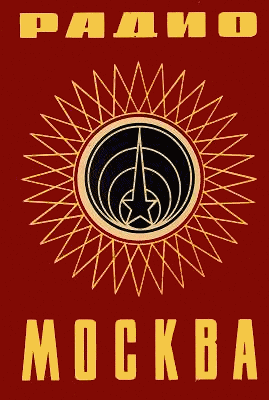External links
- History of the BBC Polish Section (Polish)
- 50 years of the BBC Polish Section (Polish)
- This Is London: The Wartime Story of the BBC Polish Section
 |
| ||||||||||||||
|---|---|---|---|---|---|---|---|---|---|---|---|---|---|---|---|
The BBC Polish Section (Polish : Sekcja polska BBC) was one of the foreign-language services of the BBC World Service. It existed between 1939 and 2005.
A decision to establish the BBC Polish Section was made on 3 September 1939, after Great Britain declared war on Germany. First programme was broadcast on 7 September 1939.
Programmes consisted of news, press reviews, commentaries, reports and interviews, and were also used for transmitting coded messages and orders to the Polish Underground using prearranged selection of songs and code phrases.
After V-E Day, a decision was made to continue broadcasting in Polish. Like other broadcasts from behind the Iron Curtain, BBC Polish-language programmes were jammed and, in the 1950s, listeners on occasion would be persecuted as enemies of the people. Jamming stopped in the 1970s but was reintroduced in 1981 as the authorities clamped down on political freedom (see martial law in Poland). Jamming finally ended in 1988. During the post-war period, while still concentrating on impartial and uncensored news, programming was expanded to culture, technology, social matters, British life and daily English language lessons.
In 1996, the office in Warsaw was opened.
On 25 October 2005 it was announced that 10 foreign-language services, including Polish, will be closed to free resources needed to start a new Arabic-language television service. The last broadcast in Polish took place on 23 December 2005.

The BBC World Service is an international broadcaster owned and operated by the BBC. It is the world's largest external broadcaster in terms of reception area, language selection and audience reach. It broadcasts radio news, speech and discussions in more than 40 languages to many parts of the world on analogue and digital shortwave platforms, internet streaming, podcasting, satellite, DAB, FM and MW relays. In 2015, the World Service reached an average of 210 million people a week. In November 2016, the BBC announced that it would start broadcasting in additional languages including Amharic and Igbo, in its biggest expansion since the 1940s.
International broadcasting, in a limited extent, began during World War I, when German and British stations broadcast press communiqués using Morse code. With the severing of Germany's undersea cables, the wireless telegraph station in Nauen was the country's sole means of long-distance communication.

BBC Radio is an operational business division and service of the state media outlet British Broadcasting Corporation. The service provides national radio stations covering the majority of musical genres, as well as local radio stations covering local news, affairs and interests. It also oversees online audio content.

Radio Moscow, also known as Radio Moscow World Service, was the official international broadcasting station of the Union of Soviet Socialist Republics until 1993, when it was reorganized into Voice of Russia, which was subsequently reorganized and renamed into Radio Sputnik in 2014. At its peak, Radio Moscow broadcast in over 70 languages using transmitters in the Soviet Union, Eastern Europe, and Cuba.
This is a chronological list of films produced in the United Kingdom split by decade. There may be an overlap, particularly between British and American films which are sometimes co-produced; the list should attempt to document films which are either British produced or strongly associated with British culture. Please see the detailed A-Z of films currently covered on Wikipedia at Category:British films.

BBC Arabic may refer to the Literary Arabic language radio station which was run by the BBC World Service, as well as the BBC's satellite TV channel, and the website that serves as an Literary Arabic language news portal and provides online access to both the TV and radio broadcasts.

BBC News Russian – formerly BBC Russian Service – is part of the BBC World Service's foreign language output, one of nearly 40 languages it provides.
Rowland Leonard Miall was a broadcaster and administrator at the BBC for 35 years, from 1939 to 1974. In retirement, he became a research historian, studying the history of broadcasting.
Radio Newsreel is a news programme produced by the British Broadcasting Corporation between 1940 and 1988. The 15-minute programme, which was eventually broadcast four times a day on the BBC World Service with a daily broadcast on the BBC Light Programme, was composed of recorded dispatches from correspondents in the field, live and recorded actuality and such other features, borrowed from the format of the cinema newsreel, as interviews with people currently in the news.
The table of years in British television is a tabular display of all years in British television, for overview and quick navigation to any year.
This is a list of British television related events from 1968. Lost in space debut was 19 August 1968 on Thames TV

BBC School Radio is a division of the BBC providing audio learning resources for primary schools in the United Kingdom.
This is a list of events from British radio in 1965.

Minister of Foreign Affairs of the Hashemite Kingdom of Jordan is a cabinet minister in charge of the Ministry of Foreign Affairs of Jordan, responsible for conducting foreign relations of the country.
A timeline of notable events relating to the BBC World Service, the world's largest international broadcaster, which began broadcasting in 1932.
A Ministerial Broadcast, also known as a Prime Ministerial Broadcast or Ministerial Statement is a televised address to the British public, usually given by the incumbent Prime Minister or other senior Cabinet Minister in times of national crisis. The BBC and other public service broadcasters must give the government air time if the circumstances are seen to be of sufficient importance, and requests from opposition leaders must also be considered.
This is a list of events from British radio in 1945.